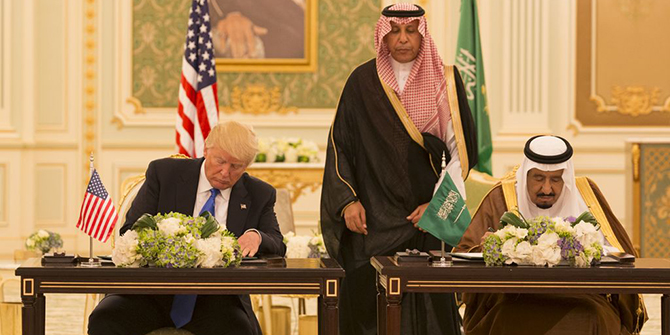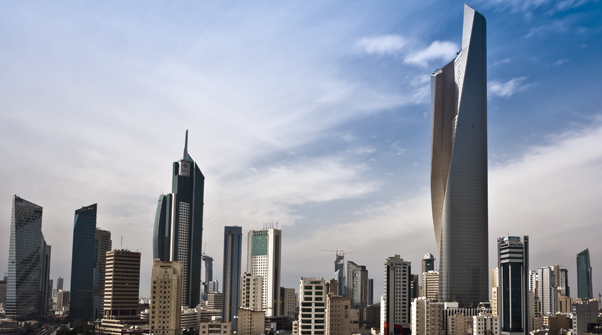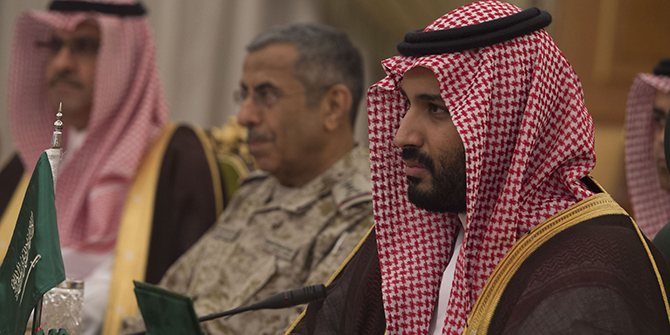by Aisha Al-Sarihi

Scientists suggest that the US withdrawal from the Paris Agreement would warm the global average surface temperature by 3.6 degrees Celsius by 2100 compared to pre-industrial levels, almost double the targeted 2 degrees. President Trump’s decision to withdraw from the Agreement has been criticised both from inside and outside the US, including by Iran amongst others. Meanwhile, other countries, like members of the Gulf Cooperation Council (GCC) have chosen to remain silent. Just days after the announcement, Saudi Arabia, the UAE and Bahrain launched an attack on Qatar, escalating diplomatic tension amongst the GCC members. They accuse Qatar of allying with the ‘enemies’, notably Iran. While GCC tension towards Iran has historical roots, the recent visit by President Trump to Saudi Arabia bolstered the support for isolating Iran. This crisis has already revealed division amongst Gulf countries, with the UAE and Bahrain backing Saudi Arabia in isolating Qatar, and Oman and Kuwait playing a neutral role.
Acknowledging that it remains uncertain how the GCC–Qatar crisis will unfold, should it remain unresolved, this raises a question of what are the implications of Trump’s withdrawal from the Paris Agreement, coupled with the region’s divisions, for GCC policies on climate change.
Should the Gulf countries choose to maintain their diplomatic isolation of Qatar [and Iran], Qatar might find it easier to ally with Iran to both regain power and minimise pressures from its neighbours. By remaining in the Paris Agreement, Iran could play a powerful regional role in supporting climate change policies, which is likely to be the case. Iran is a signatory of the Paris Agreement and is also one of the first countries in the Middle East to pursue fossil fuel subsidy reforms. The Islamic Republic is also one of the countries that criticised President Trump’s decision to withdraw from the Paris Accord: ‘The withdrawal of the United States from the Paris accord indicates the government’s lack of responsibility regarding the global community and it will increasingly isolate them’, said foreign ministry spokesman Bahram Ghasemi, according to the IRNA news agency.
All the GCC countries are signatories of the Paris Agreement, having submitted Intended National Determined Contributions (INDCs), listing their mitigation and adaptation pledges to tackle global climate change. Yet, Gulf countries vary in their historical and up-to-date actions towards climate change.
The Paris Climate Change Agreement’s ‘principle of common but differentiated responsibilities’ has motivated some Gulf countries, including Saudi Arabia, to intend to implement climate change measures in pursuit of co-benefits associated with economic diversification. Yet, Saudi Arabia’s historical strive to disturb progress in climate change negotiations might have implications in its attitude towards the Paris Agreement, especially after Trump’s withdrawal from the accord. Earlier this year, Saudi Oil Minister Khalid al-Falih welcomed Trump’s plans to pursue a more fossil fuel-oriented energy policy: ‘we want the same thing’, Mr al-Falih said. This raises the question of whether Saudi Arabia might also follow suit and withdraw from the Paris Agreement.
The UAE has been ambitious in addressing climate change. Its motivation was translated into expanding the role of the Ministry of Environment and Water to include climate change affairs, renaming it the Ministry of Climate Change and Environment in 2016. Compared to other Gulf countries, the UAE is most likely to align climate change measures into its economic diversification strategies. Since 2014, the non-oil sector has continued to account for more than 60 percent of the UAE’s GDP. To date, the UAE is the only Gulf country to launch a Green Economy for Sustainable Development initiative. Additionally, the UAE is conscious of its global image, especially for having one of the highest per capita carbon footprint globally. Hosting the headquarter of International Renewable Energy Agency (IRENA) and one of the world’s mega renewable energy projects, Masdar, the UAE’s position towards climate change might remain unquestioned even if it continues to back Saudi’s isolation of Qatar.
Oman, on the other hand, is amongst the first Gulf countries to establish a ministry dedicated to oversee environmental and climate change affairs. In 2007, the Ministry of Environment and Climate Affairs was established prompted by the devastating Guno cyclone. Oman has been well known for its neutral foreign policy and has played an active contribution to the Middle East peace. Similarly, along with Kuwait, Oman remains unbiased towards Qatar’s crisis. Unlike other Gulf countries, however, Oman has already established links with Iran with whom it signed a MoU to share LNG and with Qatar via LNG Dolphin pipeline project.
If the Qatar crisis remains unresolved, Kuwait and Oman might find themselves under pressure to join the Saudi–UAE coalition and cut diplomatic ties with Qatar. However, this is unlikely to happen. If it does, a prospective Iran–Qatar coalition would be supportive of the Paris Climate deal. Remaining in the Paris Agreement will not only encourage oil-exporting countries to find ways to minimise the effects of mitigation measures, which mainly put constraints on fossil fuels, but also to benefit from cooperating with the forthcoming climate change leadership of EU–China, the main trade partners of the GCC states.






